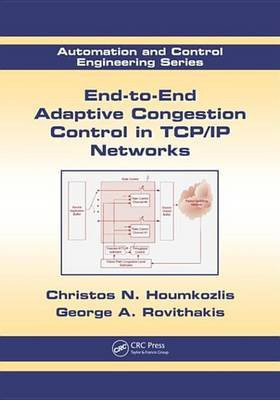End-to-End Adaptive Congestion Control in TCP/IP Networks(English, Electronic book text, Houmkozlis Christos N.)
Quick Overview
Product Price Comparison
Establishing adaptive control as an alternative framework to design and analyze Internet congestion controllers, End-to-End Adaptive Congestion Control in TCP/IP Networks employs a rigorously mathematical approach coupled with a lucid writing style to provide extensive background and introductory material on dynamic systems stability and neural network approximation; alongside future internet requests for congestion control architectures. Designed to operate under extreme heterogeneous, dynamic, and time-varying network conditions, the developed controllers must also handle network modeling structural uncertainties and uncontrolled traffic flows acting as external perturbations. The book also presents a parallel examination of specific adaptive congestion control, NNRC, using adaptive control and approximation theory, as well as extensions toward cooperation of NNRC with application QoS control. Features: Uses adaptive control techniques for congestion control in packet switching networks Employs a rigorously mathematical approach with lucid writing style Presents simulation experiments illustrating significant operational aspects of the method; including scalability, dynamic behavior, wireless networks, and fairness Applies to networked applications in the music industry, computers, image trading, and virtual groups by techniques such as peer-to-peer, file sharing, and internet telephony Contains working examples to highlight and clarify key attributes of the congestion control algorithms presented Drawing on the recent research efforts of the authors, the book offers numerous tables and figures to increase clarity and summarize the algorithms that implement various NNRC building blocks. Extensive simulations and comparison tests analyze its behavior and measure its performance through monitoring vital network quality metrics. Divided into three parts, the book offers a review of computer networks and congestion control, presents an adaptive congestion control framework as an alternative to optimization methods, and provides appendices related to dynamic systems through universal neural network approximators.


